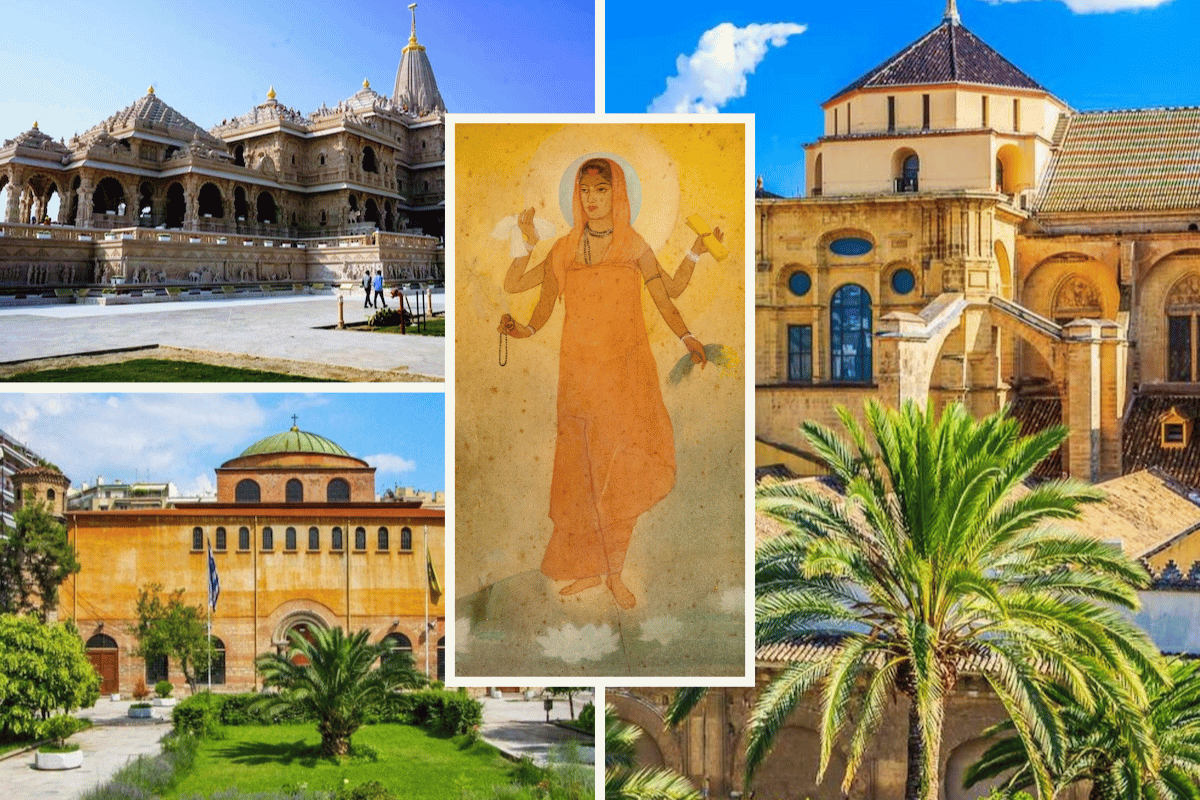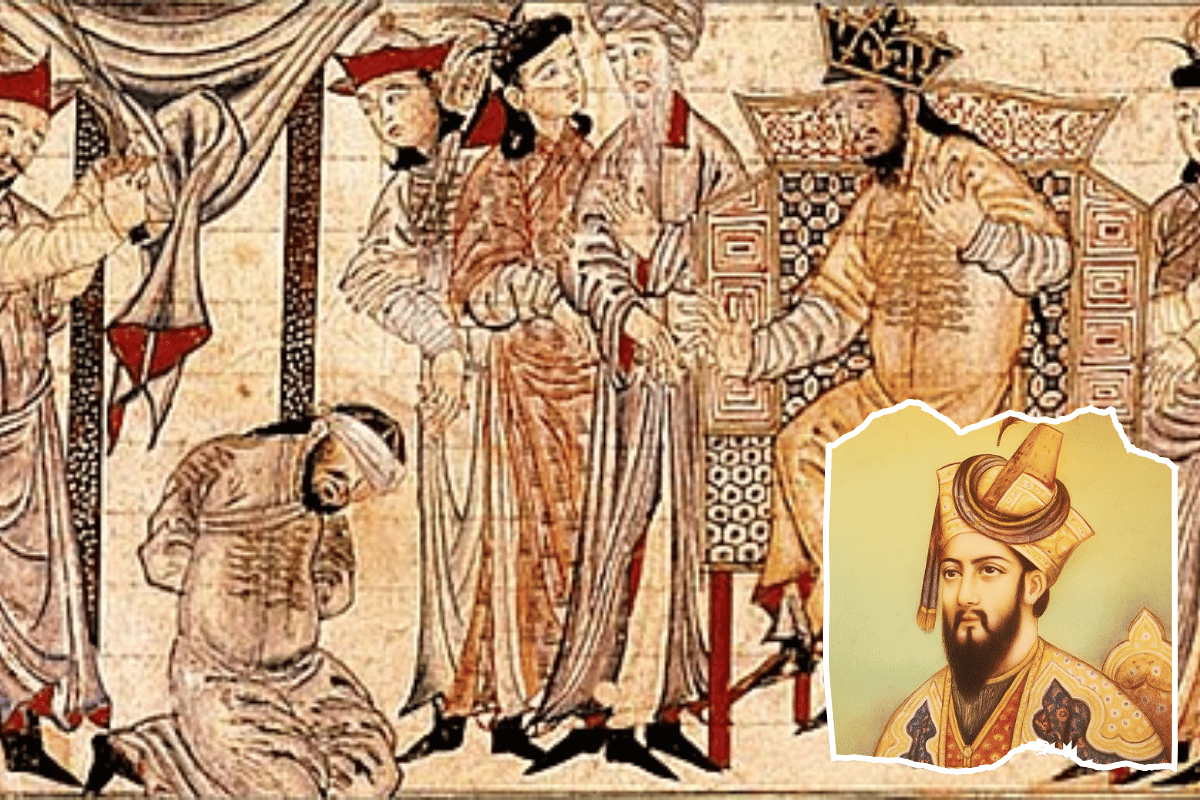
On Sunday, 1st June, in a resolute and united front, an All-Party Delegation from India visited the United Kingdom with a clear message: India stands firmly against terrorism in all its forms.

Hosted by the High Commission of India, the delegation aimed to reaffirm India’s unequivocal commitment to defeating terrorism, not just within its borders but wherever it threatens peace and civilisation across the world. A distinguished All-Party Delegation comprising Honourable Parliamentarians Ravi Shankar Prasad, Dr Purandeswari, Priyanka Chaturvedi, Ghulam Ali Khatana, Amar Singh, Samik Bhattacharya, M. Thambidurai, and M.J. Akbar, along with former Deputy NSA and Ambassador Pankaj Saran “Terrorism is inhuman.
It is anti-democratic. It is an anti-civilisational heritage”. Their words carried the weight of a nation that has repeatedly been at the receiving end of terror, yet has responded with restraint. The delegation reminded the world: “This is not an era of war. Neither is it an era of terrorism.” India’s call was not limited to condemnation. It was a call to conscience. A call to a civilised global order that must “come and talk together” to isolate terror, rather than enable it through silence and selective amnesia. And most importantly, a call to the people of Britain, in particular the Indian diaspora in the UK.
India is united
The delegation’s strength lay not in its political diversity, but in its unified purpose. “We stand here not as party representatives, but as Indians. All political parties are united when it comes to the interest of the country.” In times of national security, India speaks in one voice which is so clearly resolute and undeterred. “India has never been an aggressor. But we will never hesitate to defend every inch of our soil, and every citizen who calls it home.” This ethos of restraint and strength has long defined India’s strategic culture. “If she [India] had ever waged a war,” the delegation reminded, “it was always against underdevelopment, poverty, unemployment.” And the result of this war is increasingly clear, India is now the fourth-largest economy in the world.
Operation Sindoor and Media Narrative
The recent Operation Sindoor exemplifies this resolve. “Operation Sindoor is not just a military operation – it is India’s declaration that the blood of our martyrs is the same colour as the sindoor our women wear. Sacred. Priceless.”
The operation targeted terror camps identified even by the United Nations “The terror camps we targeted weren’t our creation, they were listed by the United Nations. We only did what the world was too afraid to do.” Yet, when India acts, the media narrative often demands restraint. “We provided evidence in 2023. We provided it again after Poonch. But the world stays silent. What more proof do you need before you name and shame Pakistan?” The hypocrisy is stark. “You host the terrorists at your tables, shake hands with their generals and then ask us to maintain peace. Peace for whom? The killers or the killed?” This double standard, asking the victim to restrain while enabling the perpetrator, must be rejected.
As the delegation stated clearly, “Terrorism and trade cannot go together. Terror and talk cannot go together.” The world must choose. Neutrality in the face of terror is complicity.
Pakistan is a Terrorist State
At the centre of global terror lies a disturbing truth: “Pakistan is not a democratic country. Pakistan has weaponised both Islam and terror as an instrument of state policy.” The evidence spans decades. “Mumbai was attacked. Parliament was attacked. Delhi was attacked. Kashi was attacked. The London Metro was attacked. New York, 9/11. In all these attacks, there is a very serious Pakistani angle.” Pakistan’s ideological foundations continue to fuel extremism. As Priyanka Chaturvedi warned, “Pakistan’s genesis comes from othering.” This othering has grown into a state-sponsored apparatus of radicalism. M.J. Akbar framed it sharply: “While India exports services and innovation to the world, Pakistan’s biggest export is terrorism.” And this isn’t hyperbole. “Daniel Pearl… the terrorist who slit his neck has been slain by Indian forces.” Pakistan continues to mask its actions behind diplomatic veneers. But the delegation did not mince words: “They host the G20 of Terror while we lead the G20 of Growth.” And the stakes are higher than ever. “If Europe doesn’t remember fascism, who will? The terror we face is not random. It is ideological, genocidal, fascist.” Akbar’s warning was grave: “Terror is the return of fascism and ethnic cleansing.”
The international community must act – not just to support India, but to protect its own future. Pakistan-backed terrorism is not just a problem for India, it is a problem for the world.
A Call for the Indian Diaspora in the UK
The delegation’s final message was one of empowerment, directed at the vast and vibrant Indian diaspora in the United Kingdom. “You can do much more than us… spread the truth.” In a world of misinformation and media manipulation, truth becomes a duty. “Your Janmabhoomi [birthplace] is India, your Karmabhoomi [place of work and service] is the UK. But your Dharma [moral duty] lies with the truth. Stand up. Speak up. Be India’s voice where silence dominates.” The diaspora holds influence in politics, business, culture, and media. With that comes responsibility.
As Dr. Purandeshwari put it, “The narrative responsibility is on us.” Not just on those who serve in public life, but on every citizen of Indian origin who believes in peace and justice. The delegation’s warning was also a plea: “Radicalism, fundamentalism, terrorism is coming to UK shores if we are not careful.” What festers in the shadows of silence today could erupt in the heart of British society tomorrow. India stands strong. Its soldiers fight with honour. But “every time they kill one of our soldiers, they must remember: behind that soldier stands 1.4 billion Indians, united and unyielding.” The diaspora must now stand with them, not in blood, but in voice. For justice. For truth. For democracy. For India.
Related Stories









